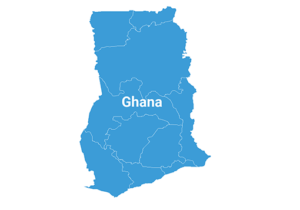 In 2004, Ghana introduced the first National Health Insurance Scheme (NHIS), a system funded by government tax income and individual memberships. The scheme covers 95% of diseases, including treatment for malaria, respiratory diseases, diabetes and hypertension. Children and the elderly are exempt from paying the annual fee, which for adults ranges between 7.2 Ghanaian Cedis (GH¢) and 48 GH¢ ($2–$10 USD), based on income and ability to pay. In 2017, the scheme was covering 47% of the population.
In 2004, Ghana introduced the first National Health Insurance Scheme (NHIS), a system funded by government tax income and individual memberships. The scheme covers 95% of diseases, including treatment for malaria, respiratory diseases, diabetes and hypertension. Children and the elderly are exempt from paying the annual fee, which for adults ranges between 7.2 Ghanaian Cedis (GH¢) and 48 GH¢ ($2–$10 USD), based on income and ability to pay. In 2017, the scheme was covering 47% of the population.
In December 2020, Ghana finalized a UHC Roadmap committing the country to attaining at least 80% coverage, in terms of citizens’ access to essential health services, by 2030. There is however, much work to do to ensure communities that are marginalized and discriminated against are not left behind.
The involvement of communities in the design, planning and development of health interventions facilitates the achievement of high levels of commitment, ownership and empowerment of communities to champion interventions to improve their own health.
– National Health Policy 2020-2030, Ghana

